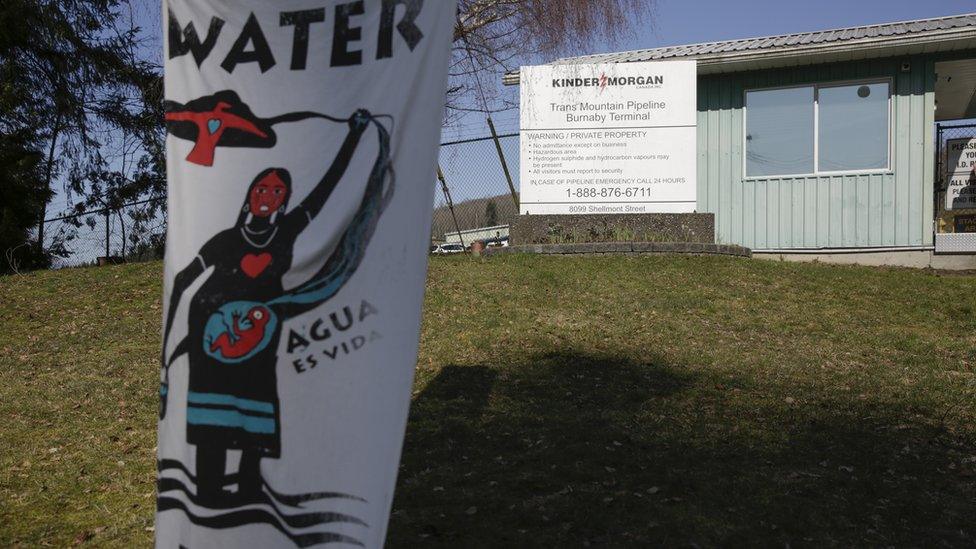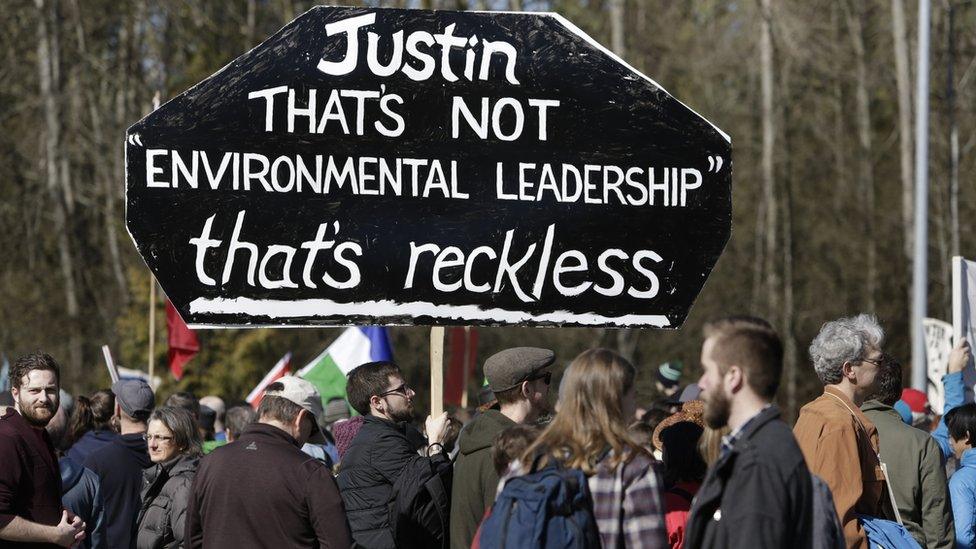Trans Mountain pipeline gets energy regulator support
- Published

A sign protesting the Trans Mountain pipeline project is pictured in front of its terminal in British Columbia
Canada's national energy regulator has recommended the Trans Mountain pipeline project receive federal approval.
The National Energy Board (NEB) says the project is in the public interest despite posing "significant" harm to the local killer whale population.
It said the oil project is justified based on its economic benefits.
The regulator was asked last year to revisit its recommendations of the controversial project after a federal court quashed an earlier approval.
The NEB issued 156 binding modified conditions and 16 non-binding recommendations it says could mitigate the harmful environmental impacts to the region's endangered killer whales and the Salish Sea, a busy inland network of waterways ranging from just north of Vancouver to Puget Sound in Washington.
The recommendations include offsetting underwater noise, oil spill response, and reducing greenhouse gas emissions from increased shipping.
Critics of the pipeline project on Friday called the NEB report "a rubber stamp" and vowed continued opposition.
A new round of consultations with the 117 indigenous groups affected by the project is ongoing and it still needs to received approval from the federal government.
What is the Trans Mountain project?
The expansion project would triple the existing pipeline's capacity, increasing its capacity from 300,000 barrels per day to 890,000 per day from Alberta, the heart of Canada's oil industry, to Burnaby, British Columbia (BC).
It would increase oil tanker traffic on BC's coast from five to up to 34 tankers a month, tankers that would carry the oil along from Pacific coast refineries to world markets.
Canada bought the existing pipeline in May for C$4.5bn ($3.4bn; £2.6bn) from energy infrastructure firm Kinder Morgan.
The company walked away from the project over concerns about delays.
The project faces fierce opposition from the government of British Columbia (BC), environmental campaigners and some First Nations along the route.
Prime Minister Justin Trudeau says that the pipeline expansion is in the national economic interest, and it has support from business groups, oil industry workers and the province of Alberta.
In August a federal appellate court decision quashed Canada's 2016 approval of the project, saying regulators failed to adequately consult First Nations along the pipeline route and to fully account for the project's impact on the region's endangered killer whales.
- Published29 May 2018
